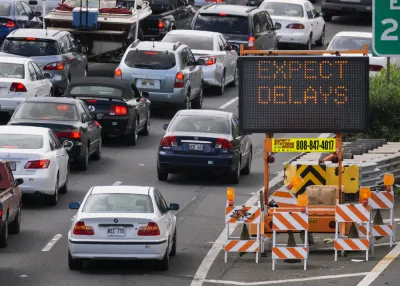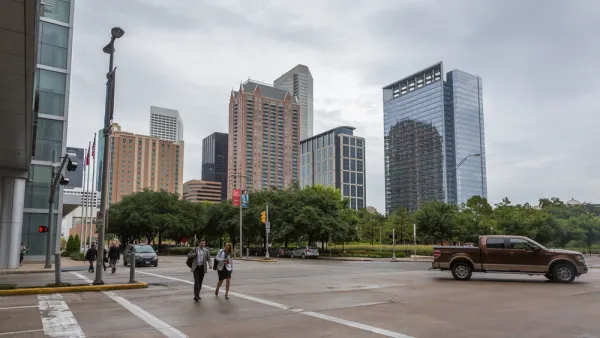A new report examines how governments can encourage citizens to use alternatives to private cars in order to reduce car dependency.

A new report by the International Transport Forum analyzes fiscal policies and other instruments for managing urban traffic and correcting current policy biases that favor automobile travel over more sustainable and affordable transport options. The report also reviews international case studies of integrated transportation and land use planning to make transportation more efficient and reduce congestion on streets.
Among the conclusions made, with much more detail, in the report:
- Cities need more efficient, less damaging and fairer use of scarce space.
- The guiding principle for managing car use is to enable citizens to carry out their daily activities without a car and not having to rely on cars to satisfy their transport needs.
- Significantly reducing the modal share of private vehicles in urban mobility implies significant long-term change in the spatial form of cities.
- The most effective urban mobility management systems deploy road pricing schemes together with road space allocation and land-use planning instruments.
FULL STORY: Reversing Car Dependency

National Parks Layoffs Will Cause Communities to Lose Billions
Thousands of essential park workers were laid off this week, just before the busy spring break season.

Retro-silient?: America’s First “Eco-burb,” The Woodlands Turns 50
A master-planned community north of Houston offers lessons on green infrastructure and resilient design, but falls short of its founder’s lofty affordability and walkability goals.

Delivering for America Plan Will Downgrade Mail Service in at Least 49.5 Percent of Zip Codes
Republican and Democrat lawmakers criticize the plan for its disproportionate negative impact on rural communities.

Test News Post 1
This is a summary

Test News Headline 46
Test for the image on the front page.

Balancing Bombs and Butterflies: How the National Guard Protects a Rare Species
The National Guard at Fort Indiantown Gap uses GIS technology and land management strategies to balance military training with conservation efforts, ensuring the survival of the rare eastern regal fritillary butterfly.
Urban Design for Planners 1: Software Tools
This six-course series explores essential urban design concepts using open source software and equips planners with the tools they need to participate fully in the urban design process.
Planning for Universal Design
Learn the tools for implementing Universal Design in planning regulations.
EMC Planning Group, Inc.
Planetizen
Planetizen
Mpact (formerly Rail~Volution)
Great Falls Development Authority, Inc.
HUDs Office of Policy Development and Research
NYU Wagner Graduate School of Public Service





























